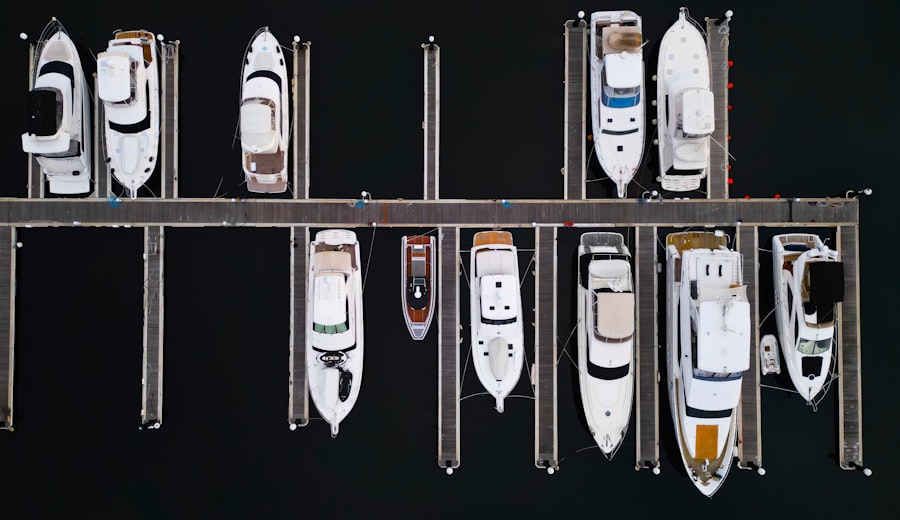Purchasing a used boat can be an incredibly rewarding experience for both seasoned mariners and newcomers to the boating world. One of the most significant advantages of buying a used boat is the cost savings. New boats depreciate rapidly, often losing a substantial portion of their value within the first few years.
By opting for a pre-owned vessel, buyers can often acquire a boat that is only a few years old at a fraction of the original price. This financial advantage allows buyers to allocate their budget toward upgrades, maintenance, or even additional accessories that enhance their boating experience. Moreover, the market for used boats is vast and varied, offering a wide range of options to suit different preferences and needs.
Whether one is looking for a small fishing boat, a luxurious yacht, or a family-friendly cruiser, the selection of used boats is extensive. This variety means that buyers can find a vessel that not only fits their budget but also aligns with their specific boating lifestyle. Additionally, many used boats come equipped with features and accessories that would be costly to add to a new boat, further enhancing the value proposition of purchasing pre-owned.
Key Takeaways
- Buying a used boat offers cost savings and value compared to new models.
- Key features to check include engine condition, hull integrity, and onboard equipment.
- Use reputable websites and compare listings to find the best deals on used boats.
- Inspect the boat thoroughly and negotiate price based on condition and market value.
- Understand legal requirements, paperwork, financing, and insurance before completing the purchase.
Top Features to Look for in a Used Boat
When considering the purchase of a used boat, it is essential to identify key features that will enhance both safety and enjoyment on the water. One of the primary aspects to evaluate is the boat’s hull condition. A well-maintained hull is crucial for performance and safety; signs of damage, such as cracks or blisters, can indicate underlying issues that may require costly repairs.
Additionally, inspecting the boat’s transom and stringers for signs of rot or deterioration is vital, as these structural components are critical to the boat’s integrity. Another important feature to consider is the engine’s condition and performance history. The engine is often the heart of the vessel, and its reliability can significantly impact the overall boating experience.
Buyers should inquire about the engine’s hours of operation, maintenance records, and any repairs that have been performed. A thorough inspection by a qualified marine mechanic can provide valuable insights into the engine’s condition and help identify potential issues before making a purchase. Furthermore, features such as fuel efficiency, ease of maintenance, and compatibility with various water conditions should also be taken into account.
How to Find the Best Used Boats for Sale Websites

In today’s digital age, finding used boats for sale has never been easier, thanks to numerous online platforms dedicated to connecting buyers with sellers. Websites such as Boat Trader, YachtWorld, and Craigslist offer extensive listings that cater to various budgets and preferences. These platforms allow users to filter searches based on criteria such as price range, boat type, location, and year, making it easier to find a suitable vessel.
Additionally, many of these sites provide detailed descriptions and high-quality images, enabling potential buyers to assess options from the comfort of their homes. Social media platforms have also emerged as valuable resources for finding used boats. Facebook Marketplace and dedicated boating groups on platforms like Instagram and Reddit can provide access to local sellers who may not list their boats on traditional websites.
Engaging with these communities can also yield insights into market trends and recommendations for reputable sellers. Furthermore, local boating clubs or marinas often have bulletin boards or newsletters featuring listings from members looking to sell their boats, providing another avenue for buyers to explore.
Comparing Prices and Negotiating Deals
| Metric | Description | Example Value | Importance |
|---|---|---|---|
| Initial Price | The starting price offered by the seller | 150 | Baseline for negotiation |
| Competitor Price | Price offered by competitors for similar products | 140 | Used to leverage better deals |
| Discount Offered | Percentage reduction from the initial price | 10% | Indicates seller flexibility |
| Final Negotiated Price | Price agreed upon after negotiation | 135 | Actual cost to buyer |
| Negotiation Time | Duration taken to reach a deal (in minutes) | 30 | Efficiency of negotiation process |
| Number of Offers Exchanged | Count of price proposals made during negotiation | 4 | Indicates negotiation intensity |
| Price Difference (%) | Percentage difference between initial and final price | 10% | Measures negotiation success |
Once potential buyers have identified several used boats that meet their criteria, the next step involves comparing prices to ensure they are making an informed decision. Researching similar models in the market can provide valuable context regarding fair pricing. Websites like NADA Guides or Kelley Blue Book offer valuation tools specifically for boats, allowing buyers to gauge whether a listing price is reasonable based on factors such as age, condition, and included features.
Negotiating the price is an essential skill in the buying process. Many sellers expect some level of negotiation and may price their boats with this in mind. Buyers should approach negotiations with confidence but also be prepared to justify their offers based on research and comparable sales data.
Highlighting any necessary repairs or maintenance that may be required can strengthen a buyer’s position during negotiations. Additionally, being flexible with terms—such as payment methods or closing dates—can create a win-win situation for both parties involved.
Ensuring the Quality and Condition of a Used Boat
Before finalizing any purchase, it is crucial to ensure that the used boat is in good condition and meets safety standards. Conducting a thorough inspection is paramount; this includes checking not only the exterior but also the interior components such as electronics, plumbing systems, and upholstery. A comprehensive checklist can help buyers systematically evaluate each aspect of the boat.
For instance, examining the condition of the sails on a sailboat or testing the functionality of onboard electronics can reveal potential issues that may not be immediately visible. In addition to personal inspections, hiring a marine surveyor can provide an expert assessment of the boat’s condition. A surveyor will conduct a detailed examination and provide a report outlining any concerns or necessary repairs.
This professional insight can be invaluable in making an informed decision and can also serve as leverage during negotiations if issues are identified. Furthermore, obtaining a sea trial—where potential buyers take the boat out on the water—can help assess its performance and handling characteristics firsthand.
Tips for Buying a Used Boat Online

Buying a used boat online presents unique challenges and opportunities that require careful consideration. One of the most critical tips is to conduct thorough research on both the boat model and the seller. Understanding common issues associated with specific models can help buyers identify red flags during inspections or discussions with sellers.
Additionally, verifying the seller’s credibility through reviews or ratings on platforms can provide peace of mind regarding the transaction’s legitimacy. Communication plays a vital role in online transactions; potential buyers should ask detailed questions about the boat’s history, maintenance records, and any modifications made over time. Requesting additional photos or videos can also help clarify any concerns about the boat’s condition.
When possible, arranging an in-person meeting or inspection before finalizing any agreements is advisable to ensure that expectations align with reality.
Understanding the Legalities and Paperwork of Buying a Used Boat
Navigating the legalities involved in purchasing a used boat is essential to ensure a smooth transaction and protect both parties’ interests. One of the first steps is verifying that the seller holds clear title to the vessel; this involves checking for any liens or outstanding loans associated with the boat. Buyers should request documentation proving ownership and ensure that all necessary paperwork is in order before proceeding with the sale.
Additionally, understanding state-specific regulations regarding boat registration and titling is crucial. Each state has its own requirements for transferring ownership, which may include completing specific forms or paying fees. Familiarizing oneself with these regulations can prevent potential legal issues down the line.
Furthermore, obtaining a bill of sale that outlines all terms of the transaction—including purchase price, condition of the boat, and any warranties—can serve as an important legal document should disputes arise in the future.
Resources for Financing and Insuring a Used Boat
Financing options for purchasing a used boat are diverse and can cater to various financial situations. Traditional banks often offer loans specifically designed for marine purchases; however, credit unions may provide more favorable terms due to their member-focused approach. Online lenders have also emerged as viable options, offering competitive rates and streamlined application processes that can expedite financing decisions.
Insurance is another critical aspect of owning a boat that should not be overlooked. Marine insurance policies vary widely in coverage options; therefore, it is essential for buyers to assess their needs based on how they plan to use their vessel. Factors such as cruising frequency, storage conditions, and whether they will be using it in saltwater versus freshwater can influence insurance rates and coverage requirements.
Consulting with insurance agents who specialize in marine policies can help buyers find suitable coverage tailored to their specific circumstances while ensuring compliance with any legal requirements associated with boat ownership.


